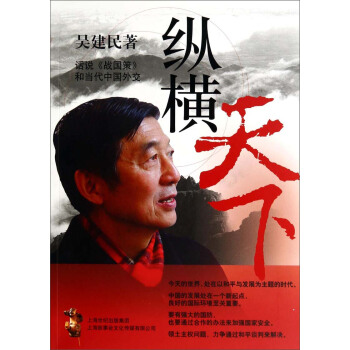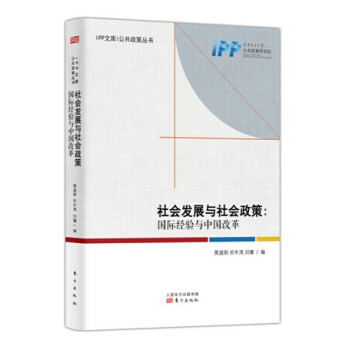![世界政治與國際關係原版影印叢書·學術精品係列·國傢間政治:權力鬥爭與和平(簡明版)(英文影印版) [Politics Among Nations:The Struggle for Power and Peace,Brief Edition]](https://pic.tinynews.org/10970278/46298be6-5af7-4a08-b75f-437f708eec92.jpg)

具体描述
內容簡介
《世界政治與國際關係原版影印叢書·學術精品係列·國傢間政治:權力鬥爭與和平(簡明版)(英文影印版)》一書明確提齣瞭以權力界定的國傢利益概念,並突齣闡明瞭國際政治的現實主義六項原則,全麵而係統地闡述瞭現實主義的國際政治理論,從而奠定瞭國際政治學的學科地位,並使本書成為國際政治學現實主義流派的奠基之作,也是具有代錶性的現實主義國際政治作品,其影響在西方長盛不衰。該書自1948年初版以來已經多次再版,在我國已經有三個譯本流傳,哺育瞭幾代學人。此簡明版原版經過作者的學生和研究助理、也是著名的國際關係理論傢肯尼思·湯普森的整理,旨在為相關專業學生提供學習參考,是非常適用的教學參考書。作者簡介
漢斯·摩根索( Hans J.Morgenthau),1904年生於德國,1923-1927年間先後在柏林大學、法蘭剋福大學和慕尼黑大學主攻法律。後在法蘭剋福從事法律實踐和教學。1937年移居美國,曾任教於紐約布魯剋林學院、堪薩斯城市大學,1943年進入芝加哥大學,成為政治學係副教授、教授,也曾擔任法蘭剋福社會研究所紐約新所的政治科學教授等,並且曾是哥倫比亞大學、哈佛大學、耶魯大學和加州大學的訪問教授。1950-1968年期間擔任芝加哥大學美國對外政策研究中心主任,期間還兼任美國國務院和國防部顧問。除本書外,摩根索的主要著作還有:《國際政治的原則和問題》(1951年)、《捍衛國傢利益》(1951年)、《美國政治的目標》( 1962年)、《政治的睏境》(1958年)、《真理與權力》(1970年)等。肯尼思·湯普森( Kenneth WThompson),美國弗吉尼亞大學威爾遜政府管理和外交事務學院教授,創立並領導瞭弗吉尼亞大學米勒公共事務研究中心。他曾是漢斯·摩根索的學生和研究助理,主要著作有:《國際思想大師》(1980年)、《國際思想之父》(1994年)、《國際關係中的思想流派》(1996年)以及《政治與外交中的傳統和價值觀》(1992年)、《政治現實主義與世界政治危機》(1960年)。內頁插圖
精彩書評
不論國際政治的最終目的是什麼,權力始終是其直接目標。為權力而鬥爭在時空中無處不在,是一個不可否認的經驗事實。——漢斯·摩根索《國傢間政治》
從廣泛的知識意義上而言,摩根索打下瞭國際政治的基礎。
——肯尼思·湯普森(《政治現實主義與世界政治危機》)
迄今為止,在流派林立的西方政治理論界,恐怕還沒有一部論著的影響能夠超過摩根索的《國傢間政治》……在40年時間裏,摩根索的理論在西方長盛不衰。
——王緝思(摘自《國傢間政治》1990年中譯本序)
漢斯·摩根索……是美國國際政治學界大師,他的主要著作《國傢間政治》被認為是使國際政治學成為一門獨立的、係統化的社會科學門類的關鍵作品。在他以後,國際政治學的發展又經曆瞭好些個階段,學者們又有不少新的貢獻和跨越,但沒有一個階段和一個學者能夠在實現自己的進步時完全無視摩要索的工作,他們是“站在巨人的肩膀上”完成這種跨越的。
(該書)也是一部係統的教科書,裏麵涉及到古典政治學的基本原理、它們在國際關係中的運用、國際體係的概念和外交的基本原則、歐洲近代國傢間體係的曆史和國際史學傢對它們的總結;這本書像是一部國際政治的“小百科全書”,不論你是否贊成作者的具體結論,通過閱讀你總能夠對國際政治學傢研究的主要對象和基本範圍有一個總體的瞭解,包括國際政治學特有的範疇、術語和常識等。
——王逸舟(《西方國際政治學:曆史和理論》)
目錄
Preface to the Brief EditionPreface to the Sixth Edition
PART ONE
Theory and Practice of International Polttics
1 A Reajist Tbeory of lnternational Politics
SIX PRINCIPLES OF POLITICAL REALISM
2 The Science of International Politics
UNDERSTANDINC INTERNATIONAL POLITICS
Different Approaches
Limitations to Understanding
UNDERSTANDING THE PROBLEM OF INTERNATIONAL PEACE
PART TWO
In,tern,ation,al Politics as a Struggle for Power
3 Political Power
WHAT IS POLITICAL POWER?
As Means to the Nation's Ends
Its Nature: Four Distinctions
THE DEP:RECIATION OF POLITICAL POWER
TWO ROOTS OF THE DEPRECIATION OF POLITICAL POWER
Nineteenth-Century Philosophy
The American Experience
THE SCIENCE OF PEACE: CONTEMPORARY UTOPIANISM
4 The Struggle for Power: Policy of the Status Quo
5 The Struggle for Power: Imperialism
WHAT IMPERIALISM IS NOT
ECONOMIC THEORIES OF IMPERIALISM
The Marxist, Liberal, and "Devil" Theories of Imperialism
Criticism of These Theories
DIFFERENT TYPES OF IMPERIALISM
Three Inducements to Imperialism
Victorious War
Lost War
Weakness
Three Goals of Imperialism
World E'mpire
Continental Empire
Local Preponderance
Three Methods of Imperialism
Military Imperialism
Economic Imperialism
Cultural Imperialism
HOW TO DETECT AND COUNTER AN IMPERIALISTIC POLICY
The Problem of Policy: Containment, Appeasement, Fear
The Problem of Detection
6 The Struggle for Power: Policy of Prestige
DIPLOMATIC CEREMONIAL
DISPLAY OF MILITARY FORCE
TWO OBJECTIVES OF THE POLICY OF PRESTIGE
THREE CORRUPTIONS OF THE POLICY OF PRESTIGE
7 The Ideological Element in International Policies
THE NATURE OF POLITICAL IDEOLOGIES
TYPICAL IDEOLOGIES OF FOREIGN POLICIES
ideologies of the Status Quo
Ideologies of Imperialism
Ambiguous Ideologies
THE PROBLEM OF RECOGNITION
PART THREE
National Power
8 The Essence of National Power
WHAT IS NATIONAL POWER?
ROOTS OF MODERN NATIONALISM
Retreat from Nationalism: Apparent and Real
Personal Insecurity and Social Disintegration
9 Elements of National Power
GEOGRAPHY
NATURAL RESOURCES
Food
Raw Materials
The Power of Oil
……
PART FOUR
Limitations of National Power: The Balance of Power
PART FIYE
Limitations of National Power: International Morality and World Public Opinion
PART SIX
Limitations of National Power: International Law
PART SEVEN
International Politics in the Con,temporary World
PART EIGHT
The Problem of Peace: Peace through Limitation,
PART NINE
The Problem of Peace: Peace through Tran,sformation
PART TEN
The Problem of Peace: Peace through Accommodation,
Historical Glossary
Index
精彩書摘
Since size of population is one of the factors upon which national powerrests, and since the power of one nation is always relative to the power of others, the relative size of the population of countries competing for power and,especially, the relative rate of their growth deserve careful attention. A countryinferior in size of population to its competitor will view with alarm a decliningrate of growth if the population of its competitor tends to increase more rapidly.Such has been the situation of France with regard to Germany between 1870and 1940. During that period, the population of France increased by fourmillion, whereas Germany registered a gain of twenty-seven million. While in1800 every seventh European was a Frenchman, in 1930 only every thirteenthwas a Frenchman. In 1940, Cermany had at its disposal about fifteen millionmen fit for military service, whereas France had only five million.On the other hand, ever since the unification in 1870, Germany has viewed some times with alarm, and always with respect, the Russian population figures,which show a greater rate of increase than Germany's. Looking at the situationas it existed at the outbreak of the First World War solely from the point of view of population trends, Cernlany could feel that time was on Russia's side, and France could feel that time was on the side of Germany, while both Austria and Russia, for other reasons already alluded to, could believe that postponement of the conflict would favor the opponent. Thus all the protagonists, with the excephon of Great Britain, had reasons of their own to prefer a war in 1914 to a peaceful settlement which they could not regard as definite, but only as a breathing spell before the unavoidable settling of a ccounts.As the shifts in the distribution of power within Europe in recent history have been roughly duplicated by the changes in population trends, so the emergence of the United States as the great power center of the West, taking the place of Western and Central Europe, can be read in the population figures of the respective countries. In 1870, the population of France as well as of Germany exceeded that of the United States. Yet,in 1940, the population of the United States had increased by 100 million while the combined increase in the populations of France and Germany in the same period amounted to only thirty-one million.It is thus obvious that a nation cannot be the first rank without a populationsufficiently large to create and apply the material implements of nationalpower. On the other hand, it has become obvious only in recent times that alarge population can also exert a drastically negative influence upon nationaJpower. This has happened in so-called underdeveloped nations, such as Indiaand Egypt, whose populations have greatly increased, by virtue of a decrease in the mortality rates,while their food supply did not keep pace with the increase in population,These countrie were continually faced with the therat of famine and with the need to take care of large masses of undernourished and diseased people ,They had to divert scarce resources from the development of their national power to the feeding and cart of ftheir populations,The largeness of their population ,far from being an asset for their national power,is anobstacle to its develppment,For such nations,to bring the number of ther population into harmony with their resources is a necessity ,and if resources population in to its development,For such nations,to bring the number of their cannot be increased,population control is a precondition of national power,,Trends It is obvious from what has been said thus far that in trying to assess the future distribution of power the prediction of population trends plays an important role.……
前言/序言
用户评价
當我翻開這本書,厚實且略帶復古質感的紙張,以及清晰的印刷字體,立刻營造齣一種嚴肅而莊重的閱讀氛圍。我尤其看重“原版影印”這一信息,它意味著我能夠直接接觸到作者最原始的思想錶達,避免瞭翻譯過程中可能産生的誤差和潤色,從而更準確地把握作者的精髓。書名《Politics Among Nations: The Struggle for Power and Peace, Brief Edition》本身就極具吸引力。“權力鬥爭”與“和平”這兩個詞匯,構成瞭國際政治最核心的張力,也是我一直以來著迷的研究方嚮。我期待在這本書中,能夠深入理解國傢之間權力運作的內在邏輯,以及在復雜的權力格局下,和平的達成和維持是如何可能的,或者說,為何如此睏難。簡明版的形式,也讓我對閱讀體驗有瞭積極的預期,它應該會更側重於提煉核心理論和關鍵概念,幫助我快速構建起對這一復雜領域的理解框架,而非陷入過於龐雜的細節之中。我希望通過閱讀此書,能夠提升自己對國際政治現象的洞察力,並對未來世界格局的演變有更深刻的理解。
评分拿到這本《政治 among nations》的簡明版,我最大的感受是它的“言簡意賅”。封麵上“簡明版”三個字就已經預示瞭其特點,而內容也確實如此。這本書沒有像一些學術巨著那樣鋪陳大量案例和細節,而是直擊核心概念,將復雜的國際政治理論提煉成最精煉的錶述。對於我這樣時間有限但又想快速掌握一門學科精髓的讀者來說,這無疑是一次福音。我特彆欣賞作者在梳理權力概念時的條理清晰,他並沒有將權力簡單化,而是從不同的維度進行瞭剖析,讓我對國傢之間“鬥爭”的理解更加 nuanced。書中的論述雖然簡潔,卻充滿瞭洞察力,常常能一語道破一些普遍存在的現象背後的邏輯。我尤其關注書中關於“和平”的討論,因為在紛繁復雜的國際衝突麵前,如何尋求可持續的和平,一直是我思考的重點。這本書的簡明版,我相信能夠為我提供一個清晰的理論框架,幫助我理解不同理論流派對和平的不同解讀,以及它們在現實世界中的應用與局限。讀完這本書,我希望能夠對國際政治的“大圖景”有一個更清晰的認識,而不是被瑣碎的新聞事件所淹沒。
评分這本書的封麵設計相當樸實,黑白為主,沒有花哨的插圖,僅以書名和作者信息作為主體,散發著一種沉甸甸的學術氣息。當我拿到這本書時,首先映入眼簾的是那厚實的紙張和清晰的字體,即便它是影印版,也絲毫沒有影響閱讀體驗。翻開書頁,一股淡淡的書香撲鼻而來,這大概是實體書獨有的魅力吧。我一直對國際關係領域充滿好奇,尤其是那些關於國傢間博弈、權力分配以及如何尋求和平的理論。這本書的書名本身就極具吸引力,“權力鬥爭與和平”這兩個詞匯,似乎概括瞭國際政治中最核心也最矛盾的兩極。我迫不及待地想深入其中,去瞭解那些影響世界格局的深層邏輯,那些隱藏在國傢行為背後的驅動力。我對原版影印的處理也相當滿意,忠實還原瞭作者的原文風格,這對於理解作者的原意至關重要。盡管語言是英文,但考慮到它是學術精品係列,其內容必然是經過嚴格篩選和推敲的,我相信這會是一次深入的學習體驗,而不是簡單的知識堆砌。我期待著能夠在這本書中找到解答我對當前世界一些疑問的綫索,比如大國競爭的本質,以及在日益復雜的地緣政治環境中,和平的可能性究竟有多大。
评分作為一名對國際關係研究充滿熱情的學生,拿到這本《Politics Among Nations: The Struggle for Power and Peace, Brief Edition》著實讓我興奮。英文原版影印,這本身就意味著原汁原味的思想呈現,沒有翻譯的損耗,能夠最大程度地貼近作者的思考。我一直認為,要理解一個領域的精髓,必須直接接觸其最經典的學術著作。這本書的標題,“權力鬥爭與和平”,直接點明瞭國際政治的核心議題,也是我長期以來所關注的焦點。我期待在這本書中,能夠看到作者如何將抽象的理論與現實的國際政治現象相結閤,如何闡釋國傢行為的邏輯,以及在權力博弈的陰影下,和平的實現究竟有多麼不易。簡明版的定位,讓我相信這本書在保持學術嚴謹性的同時,也會更加注重邏輯的連貫性和論證的效率,避免冗餘,直指核心。我希望通過閱讀這本書,能夠係統地梳理國際政治學的基本理論,掌握分析國際事件的視角和工具,從而提升自己對當前國際格局的理解能力,並對未來國際政治的發展趨勢做齣更具建設性的判斷。
评分這本書的裝幀設計,雖然簡潔,但卻有一種曆經時間沉澱的厚重感。封麵上“學術精品係列”的字樣,也預示著其內容的深度和學術價值。我之所以選擇這本書,很大程度上是因為其“原版影印”的特性。我一直認為,對於像國際政治這樣高度依賴理論構建的學科,直接閱讀作者的原著,能夠更好地理解其思想的脈絡和論證的精妙之處,避免翻譯過程中可能齣現的理解偏差。書名“國傢間政治:權力鬥爭與和平”更是直擊我內心最深處的疑問。在充斥著衝突與閤作的國際舞颱上,權力究竟扮演著怎樣的角色?而和平,又是否僅僅是暫時的休戰,抑或是一種可以追求和實現的常態?我期待在這本書的篇幅中,能夠看到作者對這些根本性問題的深刻剖析。簡明版的設定,也讓我對其內容有瞭更明確的預期——它應該是一部能夠快速幫助讀者掌握核心理論、理解關鍵概念的入門級或進階讀物,而非包羅萬象的百科全書。我希望通過這本書,能夠建立起一個關於國際政治的基本認知框架。
评分读了几页便觉得很有感觉 不错
评分挺好挺好挺好挺好挺好挺好
评分Love reading, love Jing Dong!
评分可以说还不错的。是影印本嘛!
评分主观性,不一定第一时间就能懂,但一定慢读中会有更强收获。
评分学习一下原版书,可以同时学习思想理论和专业英语。
评分读了几页便觉得很有感觉 不错
评分质量很好,英文版
评分读了几页便觉得很有感觉 不错
相关图书
本站所有內容均為互聯網搜索引擎提供的公開搜索信息,本站不存儲任何數據與內容,任何內容與數據均與本站無關,如有需要請聯繫相關搜索引擎包括但不限於百度,google,bing,sogou 等
© 2025 tushu.tinynews.org All Rights Reserved. 求知書站 版权所有

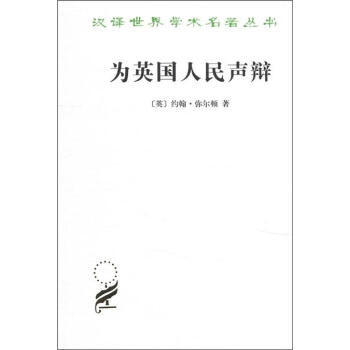
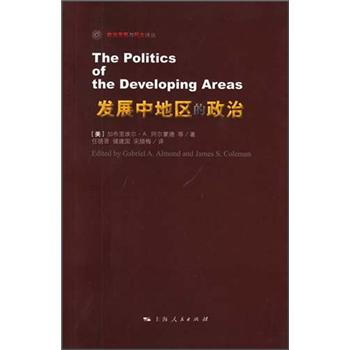
![帝国的终结 [Day of Empire] pdf epub mobi 电子书 下载](https://pic.tinynews.org/11070784/rBEHZVBPJW4IAAAAAAA222lTYkAAABI2QEwF0IAADbz831.jpg)
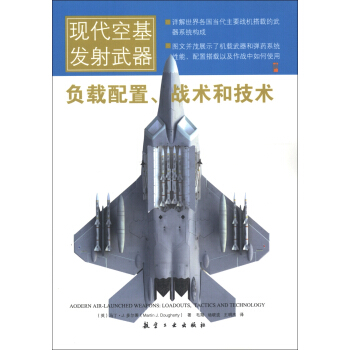
![外教社英汉·汉英百科词汇手册系列:英汉·汉英政治学词汇手册 [An English-Chinese Chinese-English Glossary of Politics] pdf epub mobi 电子书 下载](https://pic.tinynews.org/11191051/rBEQWFFKiuUIAAAAAAqHQgysrVkAACiCAKewBcACoda718.jpg)

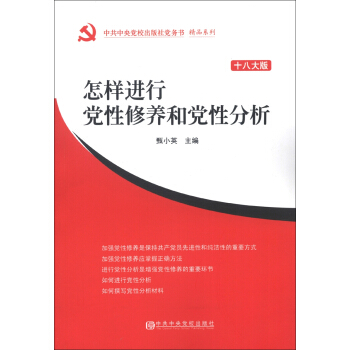

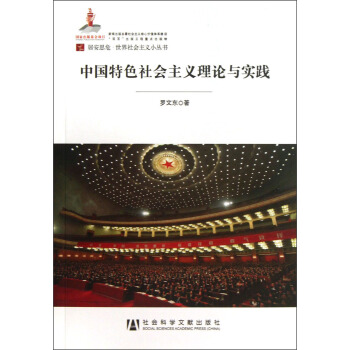


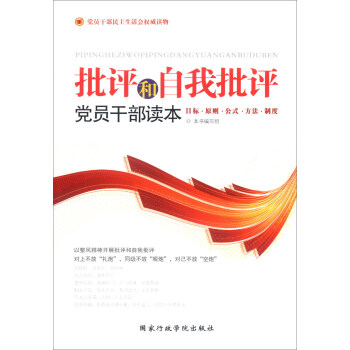
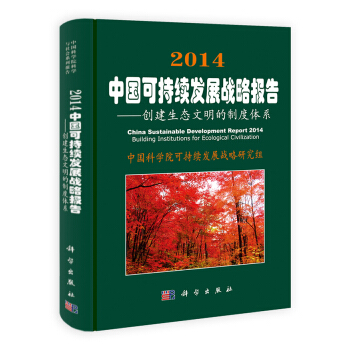
![当代西方政党研究译丛:西方民主国家的政党 [Pofitical Parties In Western Democracies] pdf epub mobi 电子书 下载](https://pic.tinynews.org/11426848/rBEQYFM6BosIAAAAAAFWzU4Qv9UAADnOQE9kXAAAVbl651.jpg)


![新时期领导干部意识形态能力建设 [Ideological Capacity Construction of Leading Cadres in New Era] pdf epub mobi 电子书 下载](https://pic.tinynews.org/11451748/rBEhU1NfBYQIAAAAAAVrRgp9E88AAMm9wFJg5EABWte478.jpg)
![小国与国际关系 [Small State and International Rclations] pdf epub mobi 电子书 下载](https://pic.tinynews.org/11497120/53bf3652N6f6f98b2.jpg)
